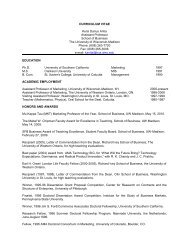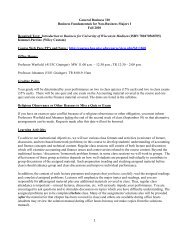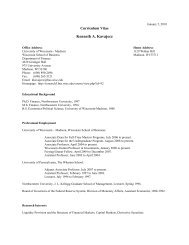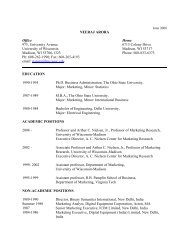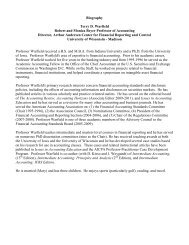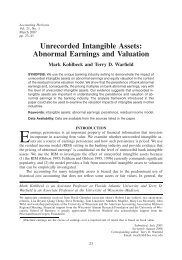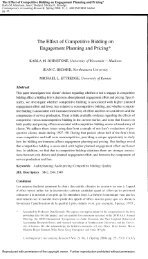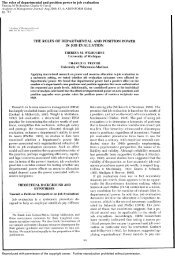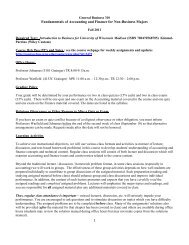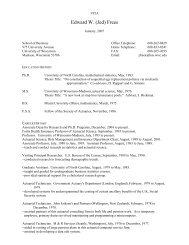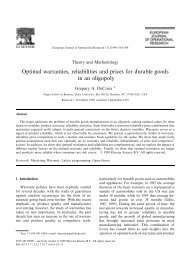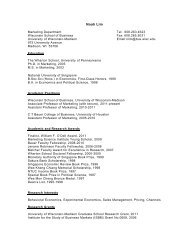family legacies - Wisconsin School of Business - University of ...
family legacies - Wisconsin School of Business - University of ...
family legacies - Wisconsin School of Business - University of ...
Create successful ePaper yourself
Turn your PDF publications into a flip-book with our unique Google optimized e-Paper software.
Family Legacies<br />
<strong>legacies</strong> by not enacting the legacy in their own lives, by doing the opposite in their daily lives,<br />
or by creating new <strong>legacies</strong> which they could pass on to the next generation.<br />
Embracing and rejecting positive and negative <strong>legacies</strong> was more complex than simply<br />
accepting the positive and dismissing the negative. In some instances, individuals only partially<br />
embraced or rejected a <strong>family</strong> legacy. In other instances, participants rejected the positive and<br />
embraced the negative. These instances are especially important because they represent times<br />
when the younger generation demonstrated agency in resisting cultural expectations.<br />
Partial acceptance and rejection. First, <strong>legacies</strong> were not always embraced or rejected as<br />
absolutes. Instead, participants <strong>of</strong>ten noted degrees to which they embraced or rejected <strong>family</strong><br />
<strong>legacies</strong>, representing a continuum that demonstrates the complex nature <strong>of</strong> <strong>legacies</strong>. For<br />
example, one participant shared a story about her <strong>family</strong> competing in marathons. Her dad<br />
always had to win, and she concluded the story saying, “I’m competitive, but not like the rest <strong>of</strong><br />
my <strong>family</strong>.” This example emphasized how <strong>family</strong> members can be similar, but yet different on<br />
an individual level. In essence, this participant modified the legacy by being “less competitive”<br />
than other <strong>family</strong> members.<br />
Family members also responded to <strong>family</strong> <strong>legacies</strong> on a situational basis. For instance,<br />
<strong>family</strong> members selected when they embraced or rejected the same theme based on the context,<br />
including who was present. Whether or not the individual embraced or rejected the legacy was<br />
also contingent upon the relationships with the people involved, and thus, the acceptance or<br />
rejection <strong>of</strong> <strong>legacies</strong> occurred within their interplay with people in their own daily experience.<br />
For example, when talking about the legacy “play too much,” a participant explained how she<br />
embraced the legacy in one situation and rejected it in another:<br />
I: In what ways, if any, have you rejected these <strong>legacies</strong> as a reflection <strong>of</strong> your own<br />
identity? Tell me a story that illustrates how you have rejected these <strong>legacies</strong>.<br />
25



